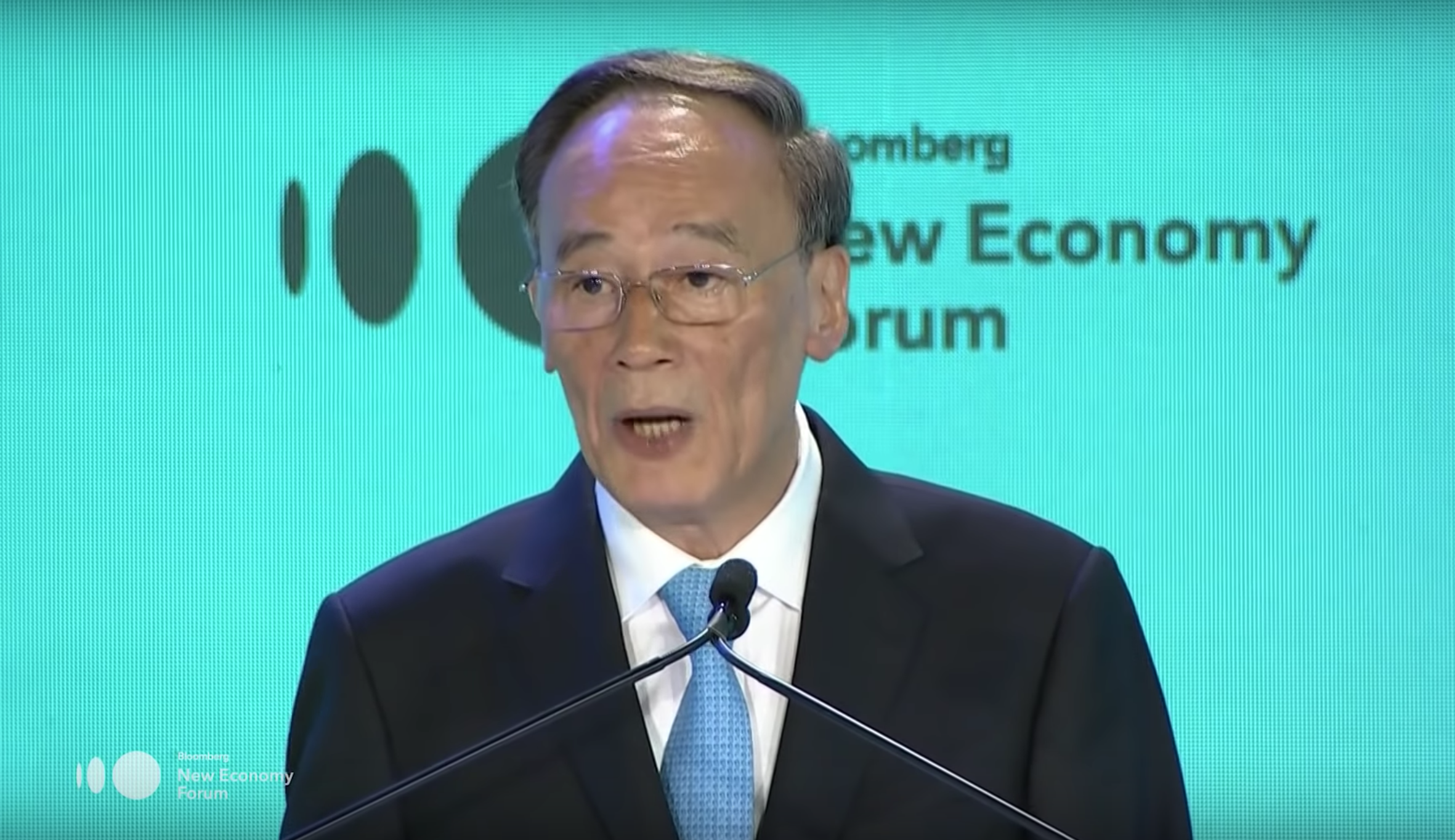It is essential to understand China's history if one wishes to understand the decisions it makes in the present, China's vice president Wang Qishan said on Tuesday (Nov. 6) at the Bloomberg New Economy Forum held in Sentosa's Capella Hotel in Singapore.
The two-day event, said to rival the World Economic Forum in Davos, Switzerland, will end on Wednesday (Nov. 7).
It was supposed to be held in Beijing, but the location was changed to Singapore due to "fallout from the trade war", according to the New York Times.
The event also coincides with an import fair in Shanghai said to be prioritised by Beijing to promote international trade with the country.
The focus remained on China despite the changes.
Here are the highlights of his almost 20-minute speech:
China is ready for talks with the U.S.
The anti-corruption czar, who is also widely regarded as Chinese President Xi Jinping's right-hand man, said there are several problems in the world today that require "close cooperation" between China and the U.S.:
"It is our firm belief that China and the U.S. will both gain from cooperation and lose from confrontation.
Our relationship will have a direct impact on global stability and development.
Trade and economic cooperation will remain the anchor and the propellor of a steady and healthy China-U.S. relationship, which is in essence, mutually beneficial."
The 69-year-old added that China is ready to work with the U.S. regarding the ongoing trade war:
"China would stay calm and sober-minded, and would embrace greater openness and work for mutual benefit.
Both China and the U.S. would love to see greater trade and economic cooperation.
The Chinese side is ready to have discussions with the U.S. on issues of mutual concern and work for a solution on trade acceptable to both sides."
China stands firmly against trade protectionism
Raising the example of the Belt and Road Initiative (BRI), Wang said:
"China will stay committed to its policy of 'opening up', let the market work its charm and create more development opportunities for the world."
He also said China is against trade protectionism and will continue to 'open up':
"As a staunch supporter of the multilateral trading regime, China will implement trade and investment, liberalisation and the facilitation policies of high standards and the support needed to reform the WTO (World Trade Organisation).
We call for proper settlement of international issues based on rules and consensus, and stand firmly against unilateralism and trade protectionism."
Look to China's past to understand its present
In addition, Wang said that despite the "great ups and downs" China has faced in the past, it continues to forge ahead:
"Given that history, the present, and future are closely related, one needs to learn about China’s history and culture in order to understand its choice of path, theory and system, and how they are supported by the Chinese culture...
To understand the history of [the People’s Republic of China] in the past 70 years, one has to go back to the year 1840 when China was bullied and oppressed by imperialist powers.
Since then, the unyielding Chinese people have been fighting to once again stand on their feet and achieve prosperity and strength."
He added that China's "unique history and culture" means that it has to "blaze a trail of its own".
Don't praise him
South China Morning Post (SCMP) reported that before presenting his keynote speech, Wang responded to U.S. tycoon Michael Bloomberg's introduction of him as "the most influential political figure" in China and the world, saying:
"When I hear words of praise, I fear that it is peng sha (捧杀).
But when I hear words of criticism, I don't worry so much because these are bang sha (棒杀)."
Peng sha means trying to beat someone with excessive praise.
Chinese scholars of international relations have argued that western countries are harming China by overestimating China's power and pushing it to take up greater global responsibility, according to SCMP.
Bang sha, on the other hand (literally "bludgeon to death") means trying to beat someone using criticism.
Both Wang and Bloomberg first met 15 years ago at a dinner hosted by the latter.
At that time, Wang was mayor of Beijing while Bloomberg was mayor of New York.
You can watch Wang's full speech here:
" frameborder="0" allow="accelerometer; autoplay; encrypted-media; gyroscope; picture-in-picture" allowfullscreen="allowfullscreen">
Top image via Bloomberg Markets and Finance/YT
If you like what you read, follow us on Facebook, Instagram, Twitter and Telegram to get the latest updates.
